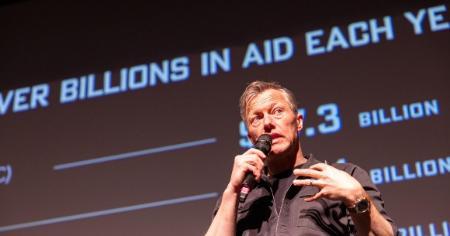
First-Year Students Inspired by the Intersection of Business and the Liberal Arts and Sciences
Students share their takeaways from Matthew Desmond’s discussion on how to combat poverty in America.

Babson’s curriculum recognizes the deep value of liberal arts at an undergraduate business school. By blending courses in business fundamentals with the liberal arts and sciences, we deliver a well-rounded educational experience that will prepare you to be an informed and responsible global citizen.
We require our students to take courses in the liberal arts and sciences throughout their time at Babson so that they can build critical thinking and communication skills for the modern world. Our core courses in the liberal arts complement the knowledge and experiences you’ll gain through learning business fundamentals, giving you the chance to see how the business world is intertwined with society and the natural world. In turn, our general education in the liberal arts and sciences gives you the opportunity to infuse new perspectives not just in your core business courses, but in your relationship with the world.

Students share their takeaways from Matthew Desmond’s discussion on how to combat poverty in America.
Successful business and entrepreneurial leaders are not only able to act, but also create and engage with the world in innovative ways. Babson’s core requirements in the liberal arts and sciences help you to develop frameworks for understanding the world that you’ll contribute to, impact, and conduct business in.
We want the world to be better. We’re trying to teach students to think in terms of these systems, so they can make it better.”
By practicing writing and research in a range of academic disciplines, Babson students develop strong communication and critical thinking skills that will benefit them not only as business leaders, but as people. Our talented faculty facilitate students’ capacity to understand different societies and cultures, artistic expressions, and scientific processes in ways that allow them to reflect on subjects within and outside of themselves. With the liberal arts and sciences providing frameworks for understanding complex global challenges, you also will emerge with a better understanding of how to wield business and entrepreneurship as a positive engine for change.
Babson students are expected to take liberal arts and sciences courses at the foundation, intermediate, and advanced levels. You’ll continue to take both liberal arts and business courses throughout your academic journey and at increasingly higher levels of sophistication, emerging with a holistic education that is invaluable to the modern business professional. Explore the courses you’ll be taking throughout your Babson journey below.
Babson’s foundation courses in the liberal arts and sciences establish essential skills and intellectual standards for a student’s development throughout their four years at Babson. The foundation courses focus on building communication and critical thinking skills that are applicable to professional and other endeavors.
Human Biotechnology (NST 1040)
Dive into the basic scientific concepts, ethical considerations, and practical applications of biotechnology in our daily lives. You will gain a number of perspectives on personalized medicine, stem cells, drug discovery, development, and regulation, food, and the environment, all of which are directly connected to human health and well-being. By the end of this course, you will recognize the importance of biotechnology in the world today, and grasp its strengths and limitations as we move forward into the middle of the 21st century.
Climate and Human Health (NST 1070)
Investigate the interaction between the spheres of natural science and human health. Draw connections between global changes such as sea level and temperature rise with human impacts, including increasing climate migration, spread of infectious disease, and threats to food security. This course focuses on the background of various global health issues and their links to climate using the scientific method and various data-driven activities to evaluate research questions. You also will evaluate the integrity of scientific data, and assess reliable sources of information.
Intermediate courses in the liberal arts and sciences allow students to become familiar with a number of frameworks and to explore the themes, issues, and questions that were introduced and explored in the first year. As you begin to gain confidence in your knowledge and skills, you’ll also be able to tailor your classes to your interests. You'll get the opportunity to select which course you’ll take to fulfill requirements in History and Society, Literary and Visual Arts, Culture and Values, and Socio-Ecological Systems.
Socio-Ecological Systems (SES 2000)
Babson’s Socio-Ecological Systems (SES) requirement teaches students how to solve real-world problems through a sustainability lens by blending the social sciences, humanities, and ecological sciences into a unique experience. You’ll get the opportunity to learn from two faculty members from the natural and social sciences, respectively, to get a truly interdisciplinary perspective on integrated sustainability and systems thinking. After completing the SES requirements, you’ll emerge with a multidimensional perspective on ecological impact and structural injustice that you can integrate into your business or personal aspirations.
The Modern American City (HSS 2058)
Learn how urban centers such as Boston, Chicago, New York, San Francisco, and Los Angeles have shaped modern American history. Learn about topics ranging from Boston's institutions of culture, to the architecture and music of the Jazz Age in New York, the development of public housing, to the counterculture movement in San Francisco.
East Asian Cultures (CSP 2009)
Discover the cultures of East Asia through an interdisciplinary lens. Focusing on thematic principals from ancient, medieval, and modern periods, this course will examine the change and continuity of Chinese, Japanese, and Korean culture and society. This course will be approached through texts in philosophy, religion, anthropology, art, literature, film, and music that span time and geography across the East Asian region.
Utopia and Dystopia: Literary Cultural Expressions (LTA 2069)
Explore the differences of utopian and dystopian realities expressed in literary and cultural texts. This course will question, is there much of a real difference between the two? Use literature to reflect on realities and ideals regarding how we govern, the ways we create order, the ways we progress, and the ways we treat others.
Our advanced courses in the liberal arts and sciences allow you to explore topics that you’re interested in with depth and creativity. In addition to participating in an intensive seminar in your advanced liberal arts coursework, your classroom experience will come alive through hands-on learning opportunities, such as simulations, or activism and service projects in the Greater Boston area.
Global Pop (MUS 4620)
Whether rallying listeners in protest, cultivating national identity for citizens of a newly independent country, or purporting to provide an escape from politics altogether, how does music develop aesthetic and ideological force? And does it do so in the same ways around the world? This course explores several popular music forms around the world, which may include Afrobeats, Bollywood film music, K-pop, and reggaetón, among many others. As we explore the style, discourse, and business of pop around the world, we will consider such issues as imperialism, nationalism, globalization, ownership, and censorship—in short, all the ways in which music means. No previous musical knowledge necessary.
Strategic Game Theory (ECN 3667)
Game theory provides a simple, but rich, framework for analyzing once-off and repeated interplay between people or firms, where the manner in which each reacts depends upon the other's reaction: strategic interaction. These interactions occur in markets, in organizations, and in the household. Through lectures, experiential learning, and computer simulations, you’ll gain an understanding of many interactions they may encounter in their business and personal lives; including price wars, public policy, the value of cooperation interactions, and the value of information.
The History and Ethics of Capitalism (HIS 4670)
This course deals with the history of capitalism from early modern times to the present, and aims not just to uncover the story of capitalist enterprise but also the cultural values and social institutions accompanying capitalism. You will work to address the tension as well as the affinity between capitalism on the one hand and, on the other, contextual cultural values and social institutions. You will also focus on the way that capitalist power subverts as well as supports the free market economy and democratic political processes.
Babson is home to well-rounded students from around the world who arrive here with a multitude of passions and interests they’re eager to explore. Our liberal arts and sciences courses allow students to explore and discover a wide range of interests, which you can continue to build upon through your curricular and extracurricular pursuits. Our students find natural intersections between concepts learned through business fundamentals and the liberal arts and sciences, and explore these intersections through business innovation and entrepreneurship.
Our courses in the liberal arts and sciences can help open doors in your approach to business and the world around you.
See how past and present students have relied on knowledge and themes from the liberal arts and sciences to incorporate Babson’s core educational themes of entrepreneurship, diversity and inclusion, global perspectives, and sustainability into their academic and extracurricular endeavors.
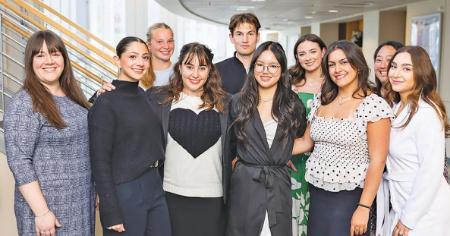
With the enduring commitment and support of the Sorenson family, the arts occupy a unique place at Babson.
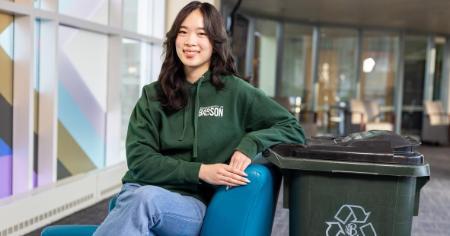
From small steps to long-term solutions, Natalie Chong ’25 champions initiatives to demonstrate how sustainability and entrepreneurship can coexist.

Demarre Johnson ’24 viewed his opportunity to be the student speaker for Babson’s celebration of Juneteenth as a moment to educate his community peers about the holiday and the oppression that minorities face.
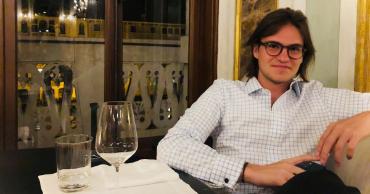
Magnus Aske ’23 found a way to combine his love of art and entrepreneurship and came up with a project involving the antiquities collection of a foreign country.
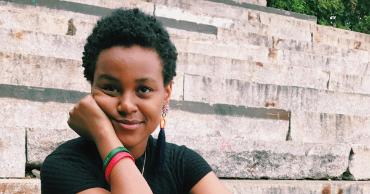
Melissa Denizard ’20, both a Natalie Taylor Scholar and a Frank & Eileen™ Center for Women’s Entrepreneurial Leadership Scholar at Babson, fell in love with filmmaking in high school.